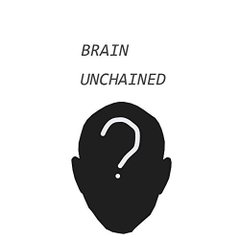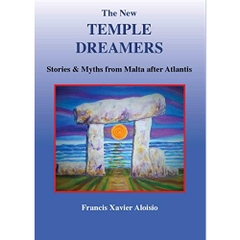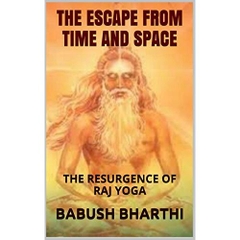-
-
-
Tổng tiền thanh toán:
-
-
Thông tin
-
Tìm sách theo yêu cầu
Book Description
Release date: June 12, 1996 | ISBN-10: 9780684824710 | ISBN-13: 978-0684824710 | Edition: Reprint
In a book that is both groundbreaking and accessible, Daniel C. Dennett, whom Chet Raymo of The Boston Globe calls "one of the most provocative thinkers on the planet," focuses his unerringly logical mind on the theory of natural selection, showing how Darwin's great idea transforms and illuminates our traditional view of humanity's place in the universe. Dennett vividly describes the theory itself and then extends Darwin's vision with impeccable arguments to their often surprising conclusions, challenging the views of some of the most famous scientists of our day.
- Link: http://www.amazon.com/DARWINS-DANGEROUS-IDEA-EVOLUTION-MEANINGS/dp/068482471X
Editorial Reviews
Amazon.com Review
One of the best descriptions of the nature and implications of Darwinian evolution ever written, it is firmly based in biological information and appropriately extrapolated to possible applications to engineering and cultural evolution. Dennett's analyses of the objections to evolutionary theory are unsurpassed. Extremely lucid, wonderfully written, and scientifically and philosophically impeccable. Highest Recommendation!
From Publishers Weekly
Dennett's philosophical argument in support of Darwinism was a National Book Award finalist.
Copyright 1996 Reed Business Information, Inc.
Copyright 1996 Reed Business Information, Inc.
Product Details
- Paperback: 586 pages
- Publisher: Simon & Schuster; Reprint edition (June 12, 1996)
- Language: English
- ISBN-10: 9780684824710
- ISBN-13: 978-0684824710
- ASIN: 068482471X
- Product Dimensions: 2.4 x 3.6 x 0.4 inches
- Shipping Weight: 15.5 ounces (View shipping rates and policies)
- Average Customer Review: 4.0 out of 5 stars See all reviews (181 customer reviews)
- Amazon Best Sellers Rank: #84,379 in Books (See Top 100 in Books)
Most Helpful Customer Reviews
205 of 220 people found the following review helpful
5.0 out of 5 stars All of life as a simple algorithm November 8, 2005
Format:Paperback|Verified Purchase
Darwin's idea is very very simple; it goes like this.
1-Organisms pass their characteristics on to their descendants, which are mostly but not completely identical to their parent organisms.
2-Organisms breed more descendants than can possibly survive.
3-Descendants with beneficial variations have a better chance of surviving and reproducing, however slight, than those with non-beneficial variations.
4-These slightly modified descendants are themselves organisms, so repeat from step 1. (There is no stopping condition.)
That's it. That's all there is to Natural Selection: a simple four step loop; a mindless algorithm that displays no intent, no design, no purpose, no goal, no deeper meaning. This simple algorithm has been running on Earth for four billion years to produce every living thing, and everything made by every living thing, from the oxygen atmosphere generated by plants to the skyscrapers and music created by man. Dennett writes that it is the algoritm's complete mindlessness that makes Darwin's idea so dangerous.
Dennett devotes the major portion of his book to aggressively arguing the above. He reviews how the algorithm could have "primed life's pump" eons ago and spends some time on describing evolution and biology. He argues that biology is engineering and thus reducible to algorithms. He also explains how simple algorithms can lead to computers that play brilliant chess and here he makes an important distinction: brilliant chess doesn't have to be perfect chess.
There is in fact an algorithm to play chess perfectly: examine all possible moves and discard all moves that do not lead to a win. The problem is that the number of possible moves is Vast, and the number of good moves is Vanishingly Small; there isn't enough time in the universe to use this algorithm. Therefore, software designers have developed imperfect but powerful (i.e. heuristic) algorithms that play merely excellent chess. Dennett uses this nuance to refute Godel's and Penrose's objections to Mind as being something "special", something more than the result of a Darwinian process.
Having argued that mind can evolve through a Darwinian process, he goes one step further: ethics can too. Darwin's world is amoral, without good or evil. We have invented the concepts of good and evil and Dennett ends with this. He reassures us that while a mindless, godless, amoral Darwinian process is at the root of everything, we can embrace morality, ethics, and beauty. To quote Dennett, "the world is sacred".
Vincent Poirier, Tokyo
1-Organisms pass their characteristics on to their descendants, which are mostly but not completely identical to their parent organisms.
2-Organisms breed more descendants than can possibly survive.
3-Descendants with beneficial variations have a better chance of surviving and reproducing, however slight, than those with non-beneficial variations.
4-These slightly modified descendants are themselves organisms, so repeat from step 1. (There is no stopping condition.)
That's it. That's all there is to Natural Selection: a simple four step loop; a mindless algorithm that displays no intent, no design, no purpose, no goal, no deeper meaning. This simple algorithm has been running on Earth for four billion years to produce every living thing, and everything made by every living thing, from the oxygen atmosphere generated by plants to the skyscrapers and music created by man. Dennett writes that it is the algoritm's complete mindlessness that makes Darwin's idea so dangerous.
Dennett devotes the major portion of his book to aggressively arguing the above. He reviews how the algorithm could have "primed life's pump" eons ago and spends some time on describing evolution and biology. He argues that biology is engineering and thus reducible to algorithms. He also explains how simple algorithms can lead to computers that play brilliant chess and here he makes an important distinction: brilliant chess doesn't have to be perfect chess.
There is in fact an algorithm to play chess perfectly: examine all possible moves and discard all moves that do not lead to a win. The problem is that the number of possible moves is Vast, and the number of good moves is Vanishingly Small; there isn't enough time in the universe to use this algorithm. Therefore, software designers have developed imperfect but powerful (i.e. heuristic) algorithms that play merely excellent chess. Dennett uses this nuance to refute Godel's and Penrose's objections to Mind as being something "special", something more than the result of a Darwinian process.
Having argued that mind can evolve through a Darwinian process, he goes one step further: ethics can too. Darwin's world is amoral, without good or evil. We have invented the concepts of good and evil and Dennett ends with this. He reassures us that while a mindless, godless, amoral Darwinian process is at the root of everything, we can embrace morality, ethics, and beauty. To quote Dennett, "the world is sacred".
Vincent Poirier, Tokyo
327 of 356 people found the following review helpful
4.0 out of 5 stars Good but not for the faint of heart! July 7, 2002
Format:Paperback
An online friend with similar interests, Steven Haines, recommended Daniel C. Dennett's book Darwin's Dangerous Idea to me some time ago. (Last year, as I recall). So enthusiastic was/is he over it, that he actually sent me a copy! After reading the book--and it took me weeks rather than days to do it--I have to say that I have mixed feelings about it. On the one hand I definitely found it dense with information, a thorough critique of Darwinism and its modern variants, and certainly a very interesting work. On the other hand I found it very slow and difficult reading.
The book doesn't simply lay before the reader the author's observations and research on his topic like so many others. In fact Dennett himself points out this fact in his introduction when he notes that the volume is a book on science not a work of science. As he rightfully notes, "Science is not done by quoting authorities, however eloquent and eminent, and then evaluating their arguments (p. 11)." What he does do is describe the topic of Darwinian evolution and its impact on society, then presents the observations and research of diverse professionals in the field, critically dissecting them for the benefit and edification of the reader. It should be noted that Dennett is not himself an anthropologist or biologist, but he is trained in critical analysis. As Distinguished Arts and Sciences Professor at Tufts University and director of that institution's Center for Cognitive Studies, he is considered a philosopher whose specialty is consciousness as high-level, abstract thinking and is known as a leading proponent of the computational model of the mind. As such he is also considered a philosophical leader among the artificial intelligence (AI) community. His credentials, therefore, give him more than adequate qualifications for performing the above noted dissection with precision and thoroughness.
It is sometimes difficult for the average person, especially one who is not specifically trained in a field of research or in the rules of logic, to be objective about the literature in an area outside their specialty. The power of the written word, the forceful current of a persuasive argument, and the care with which confirming evidence is presented and refuting evidence suppressed or camouflaged, all make it difficult to see the flaws in some of the popular works on evolution--or any other science. Therein lies the value of Professor Dennett's efforts in DDI. He carefully points out the errors and strengths of the authors he cites. As he writes, "There is no such thing as a sound Argument from Authority, but authorities can be persuasive, sometimes rightly and sometimes wrongly. I try to sort this all out....(p. 11)." And he does so step by step so that the reader can follow the logic or illogic of the arguments under discussion. In doing so he takes on some pretty visible and popular authors, Stephen Jay Gould and Richard Dawkins among the better known perhaps, and some very high level math-physics intellects, most notably Stuart Kaufmann and Roger Penrose.
I found that the work almost seemed like a collection of essays of varying length on assorted topics with all of them linked by a common theme. The book is probably best read with this in mind, since it's difficult to digest in a single sitting or even with a single read. (I tend to use post-it-note page markers to highlight points on pages I wish to review after finishing a book. There were so many post-it-notes marking my copy of DDI, that a friend at work pointed out that I might just as well re-read the entire book. He's probably right!) Part of the problem lies in the book's basic premis. As a critique of various works by diverse authorities, it demands that the reader more actively participate in the thought process of that criticism. And that participation requires a rather diverse background of knowledge: anthropology, architecture, artificial intelligence, biology, evolutionary theory, game theory, physics, philosophy, are among some of the topics covered under the cover of Darwin and evolution! It also requires some knowledge of the author's under discussion.
While I don't want to scare a prospective reader, I also think that this book might be a little more than most can or wish to handle. I do think that the person who undertakes to read it, devoting to the project the time and care that it deserves, will come away with, not only a good deal of solid information, but with a first rate training in critical thinking as well!
The book doesn't simply lay before the reader the author's observations and research on his topic like so many others. In fact Dennett himself points out this fact in his introduction when he notes that the volume is a book on science not a work of science. As he rightfully notes, "Science is not done by quoting authorities, however eloquent and eminent, and then evaluating their arguments (p. 11)." What he does do is describe the topic of Darwinian evolution and its impact on society, then presents the observations and research of diverse professionals in the field, critically dissecting them for the benefit and edification of the reader. It should be noted that Dennett is not himself an anthropologist or biologist, but he is trained in critical analysis. As Distinguished Arts and Sciences Professor at Tufts University and director of that institution's Center for Cognitive Studies, he is considered a philosopher whose specialty is consciousness as high-level, abstract thinking and is known as a leading proponent of the computational model of the mind. As such he is also considered a philosophical leader among the artificial intelligence (AI) community. His credentials, therefore, give him more than adequate qualifications for performing the above noted dissection with precision and thoroughness.
It is sometimes difficult for the average person, especially one who is not specifically trained in a field of research or in the rules of logic, to be objective about the literature in an area outside their specialty. The power of the written word, the forceful current of a persuasive argument, and the care with which confirming evidence is presented and refuting evidence suppressed or camouflaged, all make it difficult to see the flaws in some of the popular works on evolution--or any other science. Therein lies the value of Professor Dennett's efforts in DDI. He carefully points out the errors and strengths of the authors he cites. As he writes, "There is no such thing as a sound Argument from Authority, but authorities can be persuasive, sometimes rightly and sometimes wrongly. I try to sort this all out....(p. 11)." And he does so step by step so that the reader can follow the logic or illogic of the arguments under discussion. In doing so he takes on some pretty visible and popular authors, Stephen Jay Gould and Richard Dawkins among the better known perhaps, and some very high level math-physics intellects, most notably Stuart Kaufmann and Roger Penrose.
I found that the work almost seemed like a collection of essays of varying length on assorted topics with all of them linked by a common theme. The book is probably best read with this in mind, since it's difficult to digest in a single sitting or even with a single read. (I tend to use post-it-note page markers to highlight points on pages I wish to review after finishing a book. There were so many post-it-notes marking my copy of DDI, that a friend at work pointed out that I might just as well re-read the entire book. He's probably right!) Part of the problem lies in the book's basic premis. As a critique of various works by diverse authorities, it demands that the reader more actively participate in the thought process of that criticism. And that participation requires a rather diverse background of knowledge: anthropology, architecture, artificial intelligence, biology, evolutionary theory, game theory, physics, philosophy, are among some of the topics covered under the cover of Darwin and evolution! It also requires some knowledge of the author's under discussion.
While I don't want to scare a prospective reader, I also think that this book might be a little more than most can or wish to handle. I do think that the person who undertakes to read it, devoting to the project the time and care that it deserves, will come away with, not only a good deal of solid information, but with a first rate training in critical thinking as well!
XEM CHI TIẾT TẠI AMAZON.COM
- Thông tin chi tiết
- Mục lục
- Đánh giá & bình luận của người mua
- Những cuốn sách cùng chủ đề hoặc có liên quan
Tại web chỉ có một phần nhỏ các đầu sách đang có nên nếu cần tìm sách gì các bạn có thể liên hệ trực tiếp với Thư viện qua Mail, Zalo, Fanpage nhé
Đăng ký nhận tin qua email
Hãy đăng ký ngay hôm nay để nhận được những tin tức cập nhật mới nhất về sản phẩm và các chương trình giảm giá, khuyến mại của chúng tôi.












